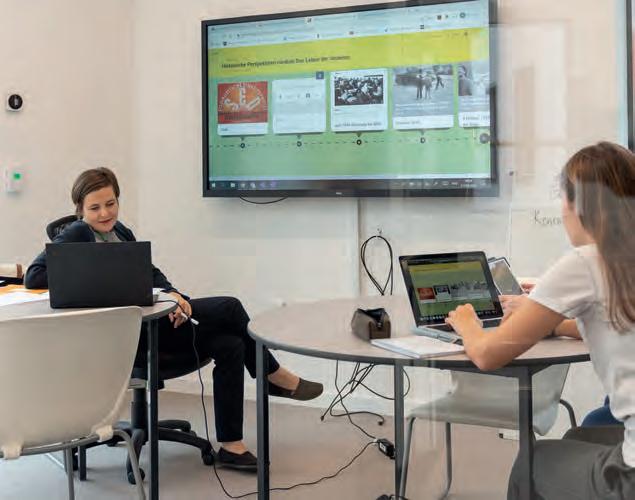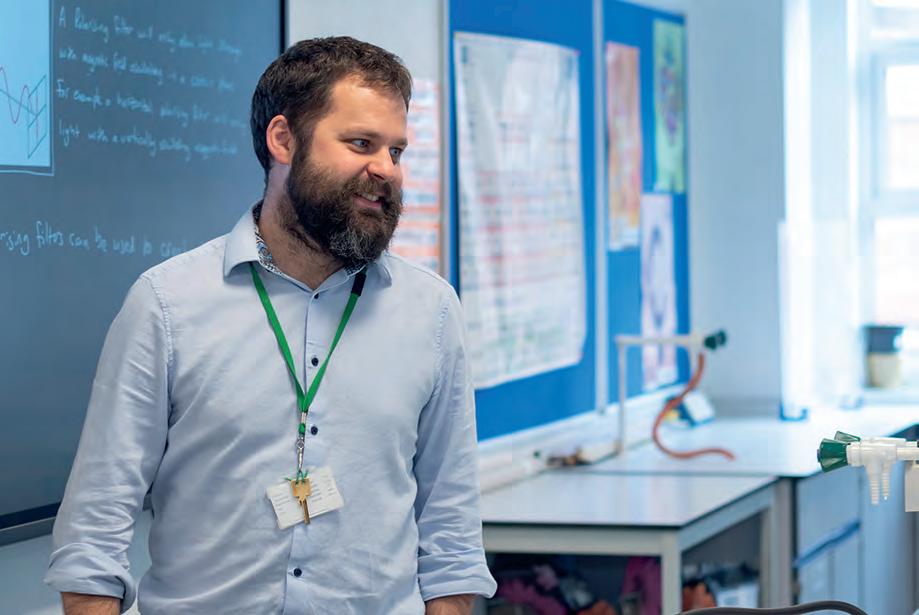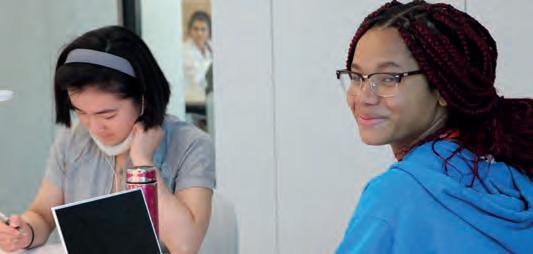
3 minute read
Growing academically
CLARE DUNCAN
Deputy Head Academic
In order for us to fulfil our school aim that ‘every girl leaves us prepared to shape the society in which she lives and works’, we plan a broad and fulfilling curriculum to get the best out of each and every student. We take pride and pleasure in watching our students grow academically and guiding them on their chosen pathway to their next phase.
The past few months have demonstrated more than ever that we need to be light on our feet and adaptable in the way we educate our students. Whatever the forum, restrictions, workplace or delivery method, there are timeless principles that we continue to deploy. Known for our ‘failure week’, one way we encourage resilience in our girls is through risk taking - and by that we don’t mean daredevil stunts. By creating a risk-taking culture academically, both teachers and students are freed to explore new ideas and possibilities. This can be through introducing unexpected elements in the classroom or by asking students to lead the teaching on certain topics. Looking at concepts from different angles and exploring many paths not only encourages students to think for themselves but also deepens problem solving skills. We instil in pupils that failure of a pursuit is a learning opportunity from which we can grow. Examples of risk taking can be seen throughout the school, such as giving questions for students to answer with no prior knowledge, posing questions where they are in fact no obvious answers, or students devising their own line of enquiry.
‘What if’ questions nurture curiosity and develop a sense of wonder (one of our key aims as a school) and it continues to delight me when girls take a germ of an idea and voluntarily delve further into it to satisfy their own inquisitiveness.
Examples of this were seen in abundance during lockdown. Take my Sixth Form Maths class: when I tempted them with snippets of themes not usually covered in school, they went on to independently explore topics such as Chaos Theory, Game Theory, Axioms and Logic, and non-Euclidean Geometry. They gave presentations of their investigations to younger girls, in turn sparking their interest in studying Maths at a higher level. This idea of a collective academic pursuit not only enriches the individual but, in the sharing of thoughts and ideas with others, also benefits the whole community.
At each age and stage students have opportunities to use and develop their ‘academic’ voice. They range from class activities, where students collaboratively or individually give presentations on their work, to delivering talks to a wider audience such as Wimtalks where they pose and answer a question. (Wimtalks are Wimbledon High School’s very own version of Tedtalks where students are given 4 minutes to talk on a chosen topic). Examples of recent titles include ‘To what extent does literature influence society, instead of vice versa?’ and ‘How are organoids going to change biomedical research?’

Further opportunities for independent research can be seen in the cutting edge studies students are undertaking with research institutes internationally with their work due to be published in academic journals. As teachers we aim to share the joy of being lifelong learners. When our Year 11 and Year 13 students should have been on study leave last summer, teachers developed a schedule of electives based on their own interests. Able to the showcase some of those ideas which had fired their own imagination, they became even more passionate advocates for their subject, hopefully igniting the fires of interest for future journalists, scientists and engineers, coders and many other career paths.
In encouraging our students to grow academically, our overriding focus is to nurture their individual interests. Our job is to introduce them to many and varied topics, across all the various subjects they learn, in order to find that one thing (or many!) that particularly delights them, that truly sparks their interest, will allow them to flourish and live rich and fulfilling lives. Whether posed by either teachers or students, ‘What if’ questions can be an invitation to innovate, discuss and debate.
• What if we mixed these two together?
• What if we repeated that experiment with a different compound?
• What if we did nothing about climate change?









